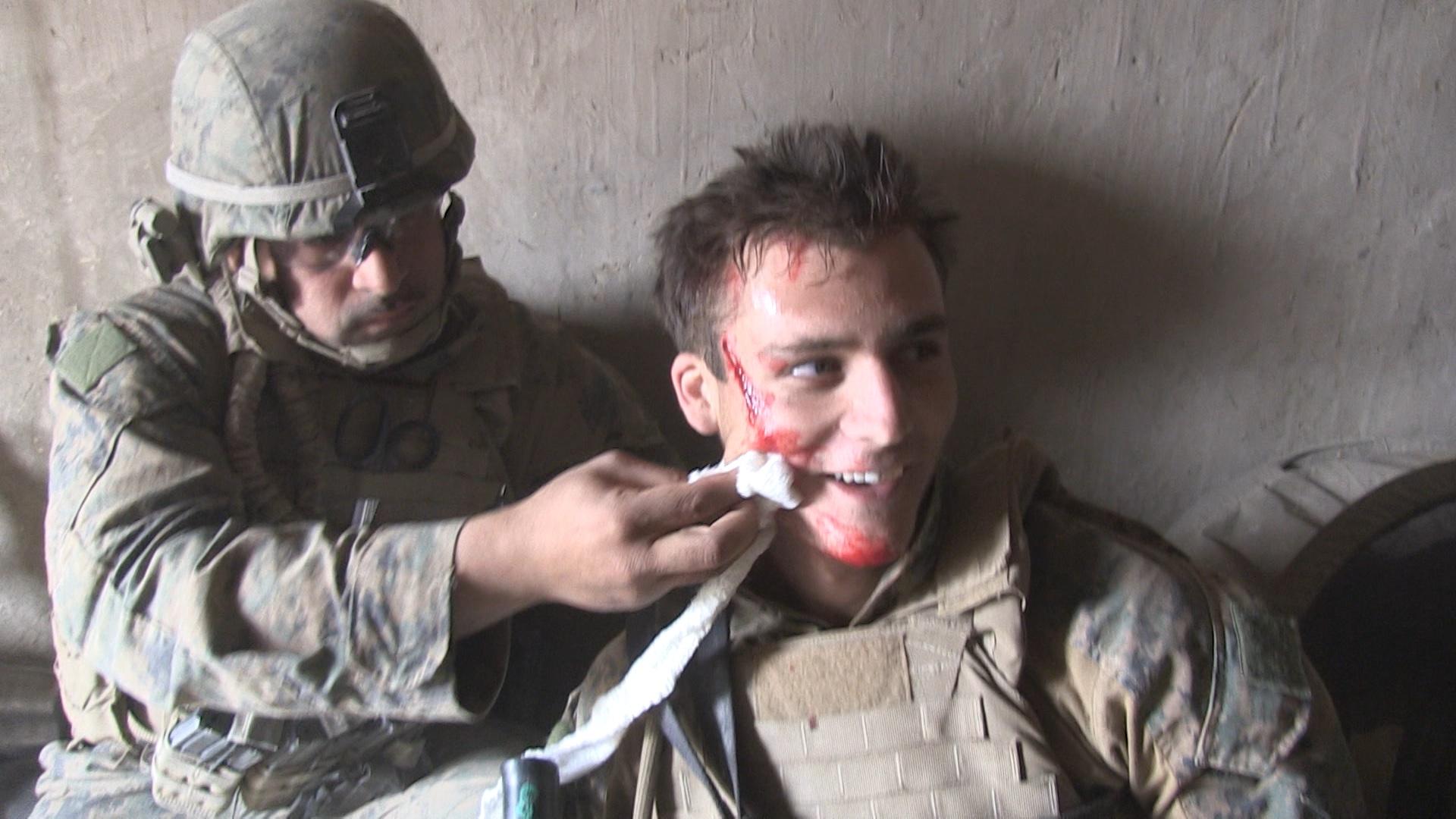We don’t talk about documentaries enough here. Occasionally, but not nearly enough. Then again, I could literally watch documentaries 24/7 around the clock and still not get my fill. Heck, I once got stuck in an endless loop and probably lost 3 straight days of my life when I first discovered “How It’s Made.” For instance, did you realize, by clicking this link right here, you could learn how Coca-cola is made? Or maybe you are more interested in how Tequila might be made? Waterbeds? Silver? Flip Flops??! (See, right now, I’m already thinking I need to get to my “How It’s Made” anonymous group. I’m starting to twitch a little.) And speaking of documentaries, I’m dying to get my hands on the new HBO documentary about Thanatos – “The Inventor: Out for Blood in Silicon Valley.” That Elizabeth Holmes individual is something else.
Wait. Where was I? Oh, right…documentaries, and Combat Obscura. Combat Obscura is the story of 18-year-old Miles Lagoze who was enlisted in the Marines as his unit’s official videographer. His job was to video the fighting, but immediately upon leaving the service he took his footage and created “the movie that the Corps does not want you to see.” So, obviously, the footage is very raw, and filled with taboo after taboo, but also comes across as an honest lens of the drug that is combat.
Just out of high school, at the age of 18, Miles Lagoze enlisted in the Marine Corps. He was deployed to Afghanistan where he served as Combat Camera — his unit’s official videographer, tasked with shooting and editing footage for the Corps’ recruiting purposes and historical initiatives. But upon discharging, Lagoze took all the footage he and his fellow cameramen shot, and he assembled quite simply the very documentary the Corps does not want you to see. COMBAT OBSCURA is an unflinching look at daily life in a war zone as told by the Marines themselves. More than a mere compilation of violence, the edit ingeniously repurposes the original footage to reveal the intensity and paradoxes of an ambiguous war from an unvarnished perspective.
And while Combat Obscura shows us an angle of this particular war that we’ve never seen before, it’s actually a movie that is more like what would you would film if you made a home war-time movie yourself. It’s filled with crazy boredom, drugs, bongs made out of Pringles cans, etc. Oh, I’m sure this is a movie that the Marine Corps would prefer you didn’t see. And if you’d like an amazingly polished and mindblowingly intense documentary about the Afghanistan war, then the movie for you is Restrepo. Restrepo tells the story of America in the Korengal Valley. But Restrepo is the polar opposite movie of Combat Obscura. Night and day different. Restrepo is an Oscar nominated film that is so polished it might as well have been edited by Oliver Stone.
But I was blown away by some of the details of our involvement in Afghanistan. How we are sending just about anyone into this war zone. And to watch, first hand, just how addictive war is to the human psyche. To see these kids jonesing for their next engagement. To realize that we are irretrievably altering the minds of these kids, and that from now on, FOREVER, their heads will be screwed up by this. And just how little they realize this is the case. There is one scene, towards the end of the movie, that is just, literally heartbreaking. Christopher P.J. Levy was hit in the head with a round, and was losing a lot of blood. Watching his friends try and try to get him out of the compound and onto the helicopter, as his life blood was pouring away, was a just anguishing to watch. And to realize that these moments will be etched into each of their memories forever is just the worst.
I am sure that pulling a movie together out of the hundreds of hours of footage that Lagoze shot must have been an arduous affair. But I will give props to Schuman who had the job to stitch a story out of this chaos. And I think the larger story here was the overwhelming hopelessness of the situation these people (both Americans and Afghani’s) are suffering through.
“By the end, Miles and I came upon a structure that I hope conveys a loss of innocence and growing nihilism and apathy as the film goes on.”
Edited by, CY



